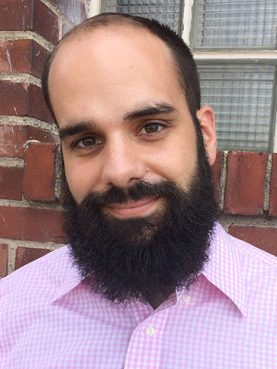(RNS) — What if I told you that a judge tried to force a young woman to undergo a controversial medical procedure even after she explicitly said the procedure violated her deeply held moral beliefs?
What if I told you that her mother, who cared for the young woman, who suffers from an intellectual disability, was also deeply offended by the procedure? What if I told you that the mother and daughter were both immigrants from Nigeria? What if I told you that the social worker assigned to the case also thought the medical procedure was a bad idea?
For many Americans, especially those on the left, a case like this goes to the heart of ableism, racism and treatment of immigrants.
What if I told you that the medical procedure was abortion?
Last week (June 21) in Britain, a court initially ordered a 28-year-old woman with the mental aptitude of a 9-year-old to abort her child at 22 weeks — when the baby could probably feel pain and have a decent shot at living outside her mother. The child’s grandmother had offered to help raise the child.
An appeals court has since overturned the ruling, allowing the woman to have her baby, to the family’s evident relief.
The rest of us are left to marvel at the way the abortion debate, as I’ve argued elsewhere, has a tendency to flip politics on its head.
When it comes to abortion, progressives who normally expect government to come to the aid of its citizens suddenly sound like libertarians who want medical decisions to be made purely on the basis of individual autonomy. Conservatives, meanwhile, end up sounding like social justice warriors, invoking the power of government to insert itself into the private and autonomous lives of sovereign individuals.
Harold Braswell, a professor of healthcare ethics at St. Louis University who identifies as a secular liberal, wrote a moving piece in The Tablet about the original ruling, offering his perspective as the son of a disabled mother.

Harold Braswell. Photo courtesy of St. Louis University
Braswell pulled no punches, insisting that “this ruling should be recognized as evil by anyone.” In the tweetstorm on which his article is based, Braswell said, “pro-abortion groups should also find it outrageous.”
It is interesting and appropriate that Braswell used the term “pro-abortion” rather than “pro-choice” here. The phrase signals a strategic shift that contemporary abortion-rights groups have made recently toward portraying abortion not as a personal necessity but as a social good, like any other medical procedure.
The British case shows that the sacredness of letting patients or their surrogates make decisions based on their own values can be discarded when the decision is about abortion. The judge, herself a well-known pro-choice activist, instead decided to overrule the patient, her mother and her social worker in favor of her own version of the good.
When push comes to shove, as it did here, abortion is not treated like any other medical procedure, and references to abortion as “health care” turn out to be mere rhetoric.
Abortion is not primarily about a privacy right or a matter of bodily integrity. Rather, it is a social good in its own right — one so obvious and powerful that a judge felt justified in ignoring everyone actually affected by the situation.
This shift in strategy is a new approach to abortion rights. Perpetuated by a tiny but nevertheless powerful minority of activists, it has further polarized the national abortion debate here in the U.S.
The old divide put pro-lifers on the side of the prenatal child’s life and pro-choicers on the side of free choice for the mother, at least until viability (in most minds). This split allowed for a modicum of agreement both on some limitations on abortions and on social support for women who, it was presumed, would not want an abortion, all things being equal.
Not so with the new polarization.
Pro-lifers have largely not changed their views (except, perhaps, becoming more open to federal social programs to help women). Their strongest opponents, however, are not willing to accept even the modest abortion restrictions accepted by much of the rest of the civilized world.
Many are not even willing to get on board with limits on late-term abortion because they fear that they might create “abortion stigma.”
Our dysfunctional abortion discourse is an out-of-control freight-train bearing down on a huge pile of explosives named “2020.” With the general election and a likely abortion decision from the Supreme Court coming next year, it is difficult to imagine anything other than a massive political explosion ahead.
It could be stopped, however, if we manage to pull off the kind of reframing of the issue for which Braswell calls. While he recognizes that this case is currently part of the culture wars surrounding abortion, his hope is that it can become the kind of issue on which we can all agree.
There is nothing in principle preventing this shift from taking place, but it will take a major effort from all of us — and especially the gatekeepers of our public discourse — to take the narrative away from the extremists and focus on what people actually believe about abortion.






